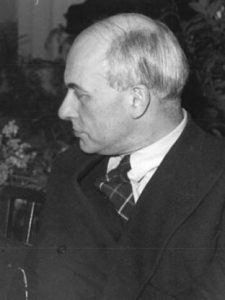By Jem Knight, BA History, Level 2
Music helps to ground us in the study of history, it gives us cultural context to what was occurring at the time and can aid in developing ideas of popular culture, different traditional ideas from different cultures and even in studying resistance movements. Music is a way of understanding different ideas in a way that is easily accessible by the masses. In this post I would like to explore the Jarrow march and the marching song that was created by Alan Bush.

The Jarrow Hunger March of October 1936, also known as the Jarrow Crusade, was an organised mass protest against unemployment and the poverty suffered in the Tyneside town of Jarrow, a town well known for its shipbuilding industry, an industry that at the time, was being torn down. Around 200 men marched from Jarrow to London to fight for the reestablishment of industry in their area to combat rising unemployment and battle the poverty that many were suffering. The petition was ultimately rejected but this was not a complete loss for the marchers as their journey had highlighted the key issues that many smaller industrialised working class areas were facing at the time.
I now bring attention to a piece that was performed by the London Labour Choral Union (LLCU) and potentially sung along route in 1936 during the hunger march, though there is speculation on the latter point. ‘Work Work Work’, a marching song, for which you can find a record conducted by Alan Bush (1900-1995) is a piece that highlights the hardships of men who were struggling to feed their families and who needed to combat rising unemployment in their area that was occurring due to the shutting of industry. They also use this song to argue the introduction of means testing for the unemployed, a practice which meant that many were going hungry as they weren’t deemed eligible for government assistance.
This is the first verse of the marching song:
Work work, we want work
Down with the means tests
Slave camps and all the rest
Work work, we don’t shirk
Work to feed our bairns and wives
Work to save our family lives
Comrades with us unite
Help us to win the fight
Strike with a mighty blow
Means test must go
This piece highlights the courage the Marchers displayed in 1936. They may have marched to a defeat but their spirit remains through this marching song. They didn’t shrink from the harsh realities that they were facing and they, along with the LLCU, didn’t shy away from publicly airing their disagreements with the government and their policies.
Due to it being a “marching song” it may give the listener thoughts relating to the military and war, something that altogether fits with a period that was sandwiched by one world war and the build up to the Second World War. The “military” tone is especially important for a song such as ‘Work Work Work’ as the marching tempo and the repetition of the marchers demands, coupled with the voices of the LLCU, shows that in many people’s minds there was still a war occurring, a class war between the working class people of Jarrow, and many other communities in similar positions, and the upper class men sitting comfortably in cabinet. It is also unsurprising to see the mention of ‘comrades’ in this song as Bush himself was a member of the communist party at this point and the party was known to support the Jarrow marchers and the hunger marches that had come before Jarrow. It is a very public declaration of the left leaning opposition to government and so shows the listener the divisions in politics at the time, helping one to understand further what was occurring at the time and how it was vocalised through music.
The music of the Jarrow hunger march is something that can be used as a gateway into exploring the event, the people involved and the politics at play. What may be perceived as a minor event now in the context of what was happening globally in the second half of the 1930s has been immortalized through this marching song and gives life to the struggle. If I had not come across this song by Alan Bush I may have gone without knowing about the Jarrow crusade and its place in history. Music helped me to not only learn about a historic event that I consider to be very important in English working-class history, but it also helped me add colour to my interpretation of events. I was able to situate myself in relation to the event and humanise the march through listening to the LLCU singing their demands. Music is a tool that we can use as historians and students, to help contextualize the world around us and the worlds that we are trying to understand.
References:
A biography of Alan Bush and many other comrades can be found in Meddick, Simon, Payne, Liz and Katz, Phil. Red Lives: Communists and the Struggle for Socialism (London, 2020).
The full song, ‘Work Work Work’, can be found in this video: https://www.youtube.com/watch?v=exMh_dzvJsQ
Image used:
Alan Bush (1900-1995) composer and conductor [online source] https://upload.wikimedia.org/wikipedia/commons/3/36/Alan_Bush_%28Bundesarchiv_Bild_183-13756-0002%29.jpg accessed 22 January 2021.